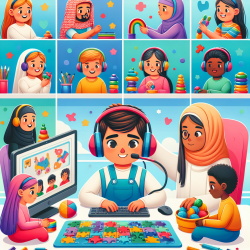The COVID-19 pandemic has dramatically altered the landscape of healthcare, and the rehabilitation of persons with aphasia is no exception. A recent scoping review titled "The effects of COVID-19 on the rehabilitation of persons with aphasia: A scoping review" by Masuku, Khumalo, and Shabangu (2022) sheds light on the multifaceted impact of the pandemic on aphasia rehabilitation. Here, we distill the key findings to help practitioners improve their skills and adapt to the new normal.
Negative Impact on Rehabilitative Care
The pandemic has compromised the progress of rehabilitation due to:
- Lockdown restrictions limiting access to services
- Reduced number of multidisciplinary team members
- Abrupt suspension of speech therapy services
Practitioners should consider flexible scheduling and remote consultation to mitigate these issues.
Telehealth: Opportunities and Challenges
Telehealth emerged as a viable alternative, but it came with its own set of challenges:
- Difficulty for patients with motor impairments to participate
- Clinicians' lack of experience with online platforms
- Language barriers in bilingual or multilingual populations
To improve telehealth efficacy, training programs for clinicians and tailored approaches for patients are essential.
Impact on Social Participation
Social participation, a critical aspect of aphasia rehabilitation, was severely affected:
- Increased isolation for patients and caregivers
- Suspension of conversational group therapies
Group therapy sessions, even if conducted online, can help mitigate feelings of isolation and enhance communication skills.
Compromised Caregiver Involvement
Caregivers faced overwhelming responsibilities due to social distancing measures:
- Remote participation in therapy sessions
- Increased roles leading to mental health challenges
Practitioners should provide support resources for caregivers to manage their additional responsibilities effectively.
Mental Health Challenges
Both patients and healthcare professionals experienced mental health issues:
- Negative effects of quarantine on healthcare professionals
- Reduced social participation leading to emotional distress for patients
Integrating mental health services into rehabilitation programs can help address these challenges.
Conclusion
The scoping review highlights the need for innovative approaches to aphasia rehabilitation during pandemics. Telerehabilitation, if tailored to meet the specific needs of patients and caregivers, can be a valuable tool. However, it requires a well-trained workforce adept at using digital platforms. To read the original research paper, please follow this link:
The effects of COVID-19 on the rehabilitation of persons with aphasia: A scoping review.










